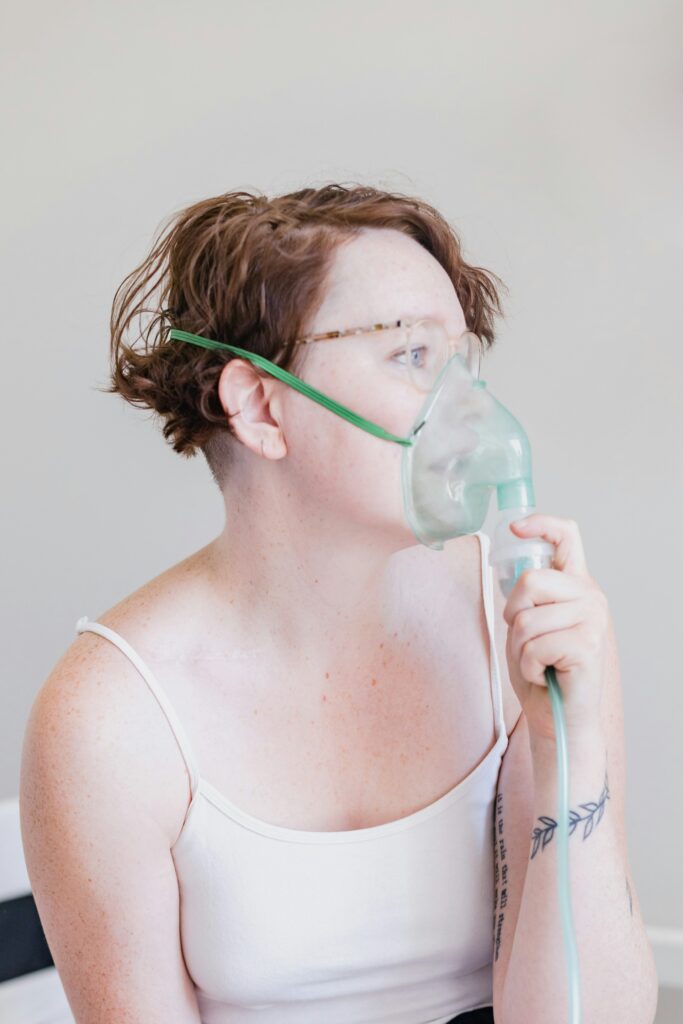 Respiratory therapist jobs in Europe offer high earning potentials, among other benefit,s for healthcare professionals. Respiratory therapists are highly qualified professionals who play a crucial role in patient care, specializing in the assessment and treatment of breathing disorders, from chronic respiratory diseases to emergency care for patients who have trouble breathing. Respiratory therapists in Europe provide oxygen, control ventilators, and administer medications to the lungs. They work under the supervision of physicians and treat a variety of patients, from elderly patients with lung disease to premature infants whose lungs are not fully developed.
Respiratory therapist jobs in Europe offer high earning potentials, among other benefit,s for healthcare professionals. Respiratory therapists are highly qualified professionals who play a crucial role in patient care, specializing in the assessment and treatment of breathing disorders, from chronic respiratory diseases to emergency care for patients who have trouble breathing. Respiratory therapists in Europe provide oxygen, control ventilators, and administer medications to the lungs. They work under the supervision of physicians and treat a variety of patients, from elderly patients with lung disease to premature infants whose lungs are not fully developed.
As a respiratory therapist, you have the opportunity to earn above-average salaries while making a significant impact on patients’ lives. This makes the position an appealing option when thinking about a healthcare career.
Read Also: Travel Nurse Agencies in Europe
What is the Respiratory Primary Job in Europe
The majority of respiratory therapists’ jobs in Europe are in acute care facilities, such as hospitals’ emergency departments, critical care units, and general medical floors. They also work in outpatient clinics, rehabilitation facilities, and long-term care facilities. Particularly in critical care, the work environment is frequently fast-paced and demands prompt decision-making. As members of a cooperative patient care team, therapists collaborate closely with nurses, doctors, and other medical specialists. Given that patient care is provided around-the-clock, schedules frequently include shifts that include nights, weekends, and holidays. The position offers substantial patient engagement and a direct impact on the well-being of patients, albeit occasionally being physically demanding.
RELATED CONTENT: NHS Jobs In the UK
What is the Demand for Respiratory Therapist Jobs in Europe?
 The demand for respiratory therapy jobs in Europe is expected to continue to rise, making it an appealing career choice for those interested in healthcare. The job outlook for respiratory therapists is positive, with employment expected to grow by 13% from 2022 to 2032, which is much faster than the average for all occupations. This growth is driven by an ageing population with a higher incidence of respiratory conditions, such as pneumonia and chronic obstructive pulmonary disease (COPD), as well as a greater emphasis on reducing hospital readmissions through respiratory therapy.
The demand for respiratory therapy jobs in Europe is expected to continue to rise, making it an appealing career choice for those interested in healthcare. The job outlook for respiratory therapists is positive, with employment expected to grow by 13% from 2022 to 2032, which is much faster than the average for all occupations. This growth is driven by an ageing population with a higher incidence of respiratory conditions, such as pneumonia and chronic obstructive pulmonary disease (COPD), as well as a greater emphasis on reducing hospital readmissions through respiratory therapy.
Their knowledge is highly sought after, particularly as respiratory diseases increase in frequency. However, depending on the environment and particular function they play, respiratory therapists may have different working conditions than those in any other healthcare profession.
Read Also: Employment for Senior Care Positions in the United States with Visa Support
Are Respiratory Therapist Jobs Popular in Europe?
Respiratory Therapy jobs are not widely used or recognised in Europe, and other professionals, such as physiotherapists, may fill the roles. The certification and educational requirements for the equivalent positions may differ from those in the US.
The term “Respiratory Therapist” is not used consistently throughout Europe. Physiotherapists frequently perform the duties of a respiratory therapist in various European nations, especially when it comes to non-ICU ventilator care. Specialty courses and seminars are consistently offered to trained physiotherapists and critical care nurses. These individuals formed an association, the European Respiratory Society (ERS), to address newer approaches to respiratory disorders.
The Lack of direct transferability.Since European nations might not have a similar role or licensing authority, a degree in respiratory therapy from a foreign country could not be readily transferable. There are also pay systems in place for professionals who carry out tasks similar to those of respiratory therapists, even though the titles may differ. However, the employer and the individual’s qualifications would determine the exact salary.
Are There Employment Opportunities for Respiratory Therapist Jobs in Europe?
 Employment opportunities should be excellent. Respiratory therapist employment is predicted by the Bureau of Labour Statistics to grow at a significantly greater rate than the national average. To care for the enormous ageing population, respiratory therapists are in high demand. Respiratory treatment may be beneficial for lung and heart diseases that are more common in older adults. Some therapists may progress to administrative or staff therapist roles with more education and experience. Others go into equipment marketing and sales or launch their respiratory care businesses.
Employment opportunities should be excellent. Respiratory therapist employment is predicted by the Bureau of Labour Statistics to grow at a significantly greater rate than the national average. To care for the enormous ageing population, respiratory therapists are in high demand. Respiratory treatment may be beneficial for lung and heart diseases that are more common in older adults. Some therapists may progress to administrative or staff therapist roles with more education and experience. Others go into equipment marketing and sales or launch their respiratory care businesses.
Where do Respiratory Therapists in Europe Work?
Research shows that approximately 75% of respiratory therapists in Europe are working in hospitals. You can also find them working in home health agencies, nursing homes, cardiopulmonary rehabilitation facilities, and cardiopulmonary diagnostic labs. They usually put in 35–40 hours a week. They could have to work on weekends, holidays, and at night, depending on their job, particularly if they are in charge of patient care at nursing homes or hospitals. Respiratory therapists often work long shifts and are on their feet for the majority of the time.
What to do if interested in Respiratory Therapy Jobs in Europe
Those who want to work as respiratory therapists should have strong organizational skills and be meticulous. Strong interpersonal and problem-solving abilities are crucial, as is the capacity to function well under duress. Students in high school can benefit from studying science, math, and health classes to get ready for the position. You must have a two-year associate’s degree or a bachelor’s degree in respiratory therapy. These are the two options available to respiratory therapists; some employers favour the latter. It could be advantageous to work or volunteer in a hospital or ventilator centre throughout high school because certain programs may demand verified volunteer or job experience in a place with respiratory care as part of their admission requirements.
10 Challenges in Respiratory Therapy Jobs in Europe
-
The Work of Respiratory Therapy Is a Physical Job
Moving from patient room to patient room, carrying equipment, and helping patients with different breathing exercises take up a large amount of a respiratory therapist’s shift. Additionally, they might have to provide chest physical therapy, physically reposition patients, or react quickly in emergencies. Respiratory therapy jobs in Europe occasionally have to lift or support patients, especially when helping with intubations or assisting patients with their movement for treatment. It can be physically demanding due to the constant physical activity and the requirement for accuracy and caution.
-
You May Be at Risk of Contracting an Illness
Respiratory therapists frequently work closely with patients who have COVID-19, influenza, or tuberculosis, among other airborne illnesses. Their work responsibilities, which frequently involve bronchoscopies or nebuliser treatments, have the potential to aerosolise germs, increasing the risk of exposure. Despite rigorous hygienic and sanitisation procedures, working in hospitals and other healthcare facilities exposes individuals to a variety of infections that are common there. Respiratory therapists in Europe may be more prone to infections as a result of the weakness of their immune systems from the physically demanding and taxing nature of their work, unpredictable hours, and even sleep disturbances. To reduce the risk of sickness, professionals must prioritise their health and maintain strict infection control procedures.
-
The Work Can Be Emotionally Taxing
As a respiratory therapist, you are frequently on the front lines of patient care, particularly when handling life-threatening or severe circumstances. This implies that at some of the most trying periods of their life, therapists regularly engage with patients and their families. Treating patients with chronic respiratory conditions or in emergencies, both of which might have unpredictable results, is a big part of the work. Emotional stress may result from this uncertainty and the close participation in patient care.
So, because of the critical nature of their job in hospital settings, there is a constant high need for these specialists.
-
Unusual Work Schedules
Many respiratory therapy Jobs in Europe, particularly those employed in hospital settings where 24-hour patient care is crucial, deal with irregular work schedules. Therapists usually work evenings, nights, weekends, and even holidays, which translates into shift work. Therapists may work mornings one week and nights the next due to the alternating shifts used by some facilities. Because it throws off the body’s normal circadian cycle, this revolving schedule can be especially difficult. Furthermore, the difficulty may have an impact on sleep patterns.
Despite the therapist’s and the medical team’s best efforts, a patient’s condition might sometimes worsen. This, however, leaves them feeling depressed or hopeless. Long-term patients and respiratory therapists frequently develop strong emotional attachments. Note that any negative change in the patient’s condition is especially difficult.
-
Certain patients could be combative or uncooperative
As a respiratory therapist, you will be caring for a wide range of patients. Some of these people may oppose or resist the recommended treatments because of their characteristics, fear, anxiety, or medical condition.
-
You must be Very Responsible
There are a lot of responsibilities when it comes to being a respiratory therapist in Europe. You’ll frequently have to make snap decisions that have a big influence on a patient’s outcome. Your decisions can change someone’s life. Whether it’s recognising the need for quick intervention or modifying a ventilator setting to maximise oxygenation. Additionally, you will be in charge of running and maintaining complex breathing equipment. You will be making sure that everything functions perfectly because any malfunction may have a direct impact on a patient’s health.
-
You must obey the Protocols
Clinics and hospitals follow particular procedures for various ailments and treatments. It can be difficult to stay current and make sure there is adherence to these procedures. There is a growing and constant introduction of new methods, drugs, and tools. In order to successfully integrate these advancements into patient treatment, Respiratory Therapists in Europe must take the initiative to become knowledgeable about them. The guidance and instruction available to patients and their families may also need regular updates as guidelines change.
-
The Field Is Always Changing
Therapists must remain up to date and modify their knowledge base. This happens since new respiratory disorders and diseases are always being discovered through study. There is a need for continuous research and study to improve knowledge.
-
It can be challenging to manage patients and their families’ expectations
Improving a patient’s respiratory condition right away isn’t always feasible. It takes careful balancing to communicate hope while managing patients’ and their families’ expectations. Occasionally, respiratory therapists in Europe have to tell patients and their families about the seriousness of an illness. They can also mention the limitations of treatment or a lack of progress.
-
Burnout Is Possible
The hard nature of their employment, respiratory therapists are particularly concerned about burnout. They frequently work in critical care settings. Moreover, the emotional strain of their encounters with patients can wear them out and make them negative and less effective. Emotional weariness can result from working closely with critically sick patients, some of whom may not recover. This is especially true when therapists develop strong relationships with long-term patients.
Salary of Respiratory Therapy Jobs in Europe
The salary for a respiratory therapist in Europe varies by employer, experience level, and geographic area. For example, according to Europe Language Jobs, a hybrid position at Bloomberg can earn between €32,400 and €33,600 per year in gross pay.
Additionally, you can visit the websites of companies directly, particularly those that are popular for operating in Europe. Seek out jobs that specifically state “respiratory therapist,” “respiratory care practitioner,” or comparable titles. Pay special attention to the income information supplied. This information may be put in as a monthly or annual sum and may be either gross (before taxes) or net (after taxes).
Conclusion
A respiratory therapy job in Europe is a fulfilling career with excellent pay. Although the average annual compensation for respiratory therapists in the US is approximately $77,960, this can vary depending on several factors. These factors include region, experience, and the healthcare context. The possibility of higher pay and career promotion is growing along with the demand for respiratory therapists. Understanding the elements that affect compensation will help you make better decisions about your career path. This applies if you are pursuing a job in respiratory therapy or are already an employee in the industry.
